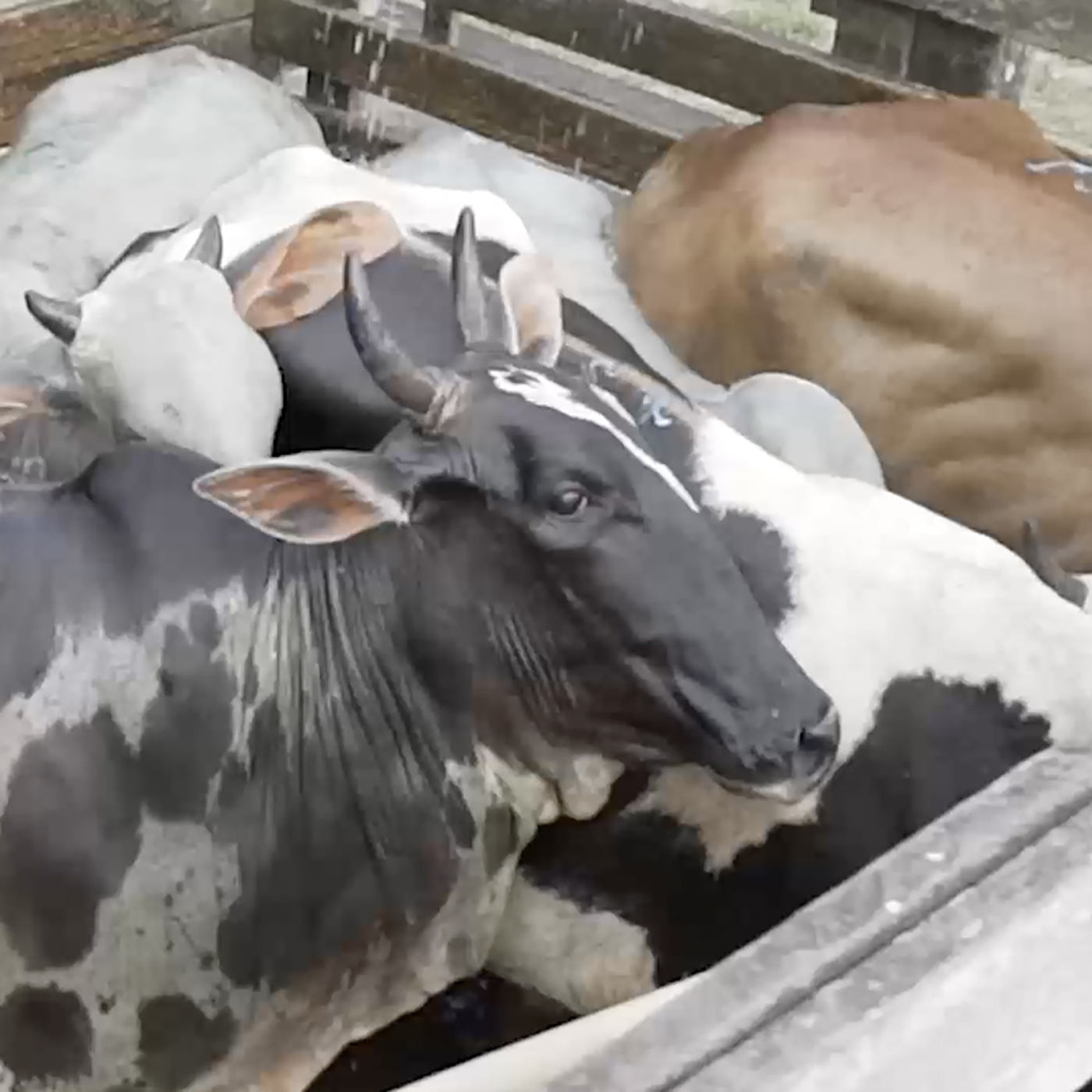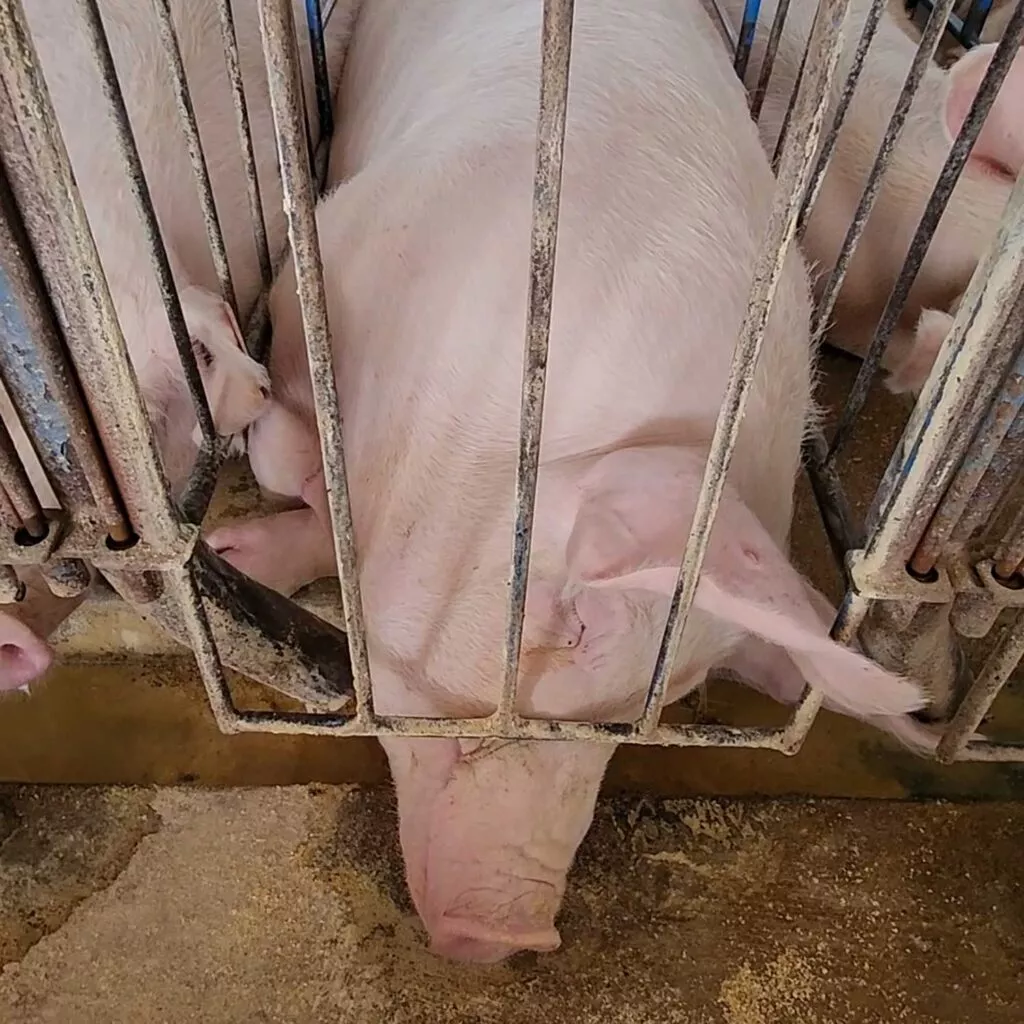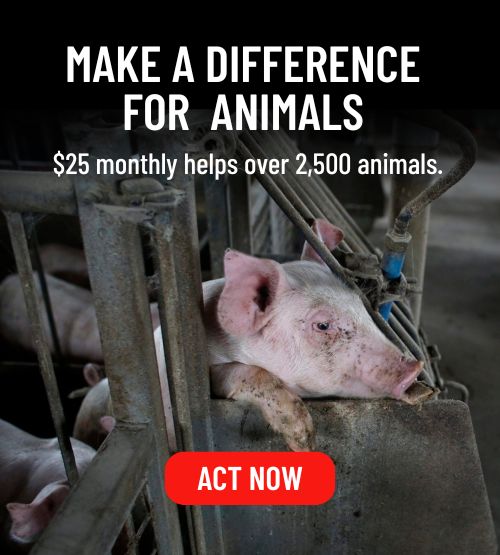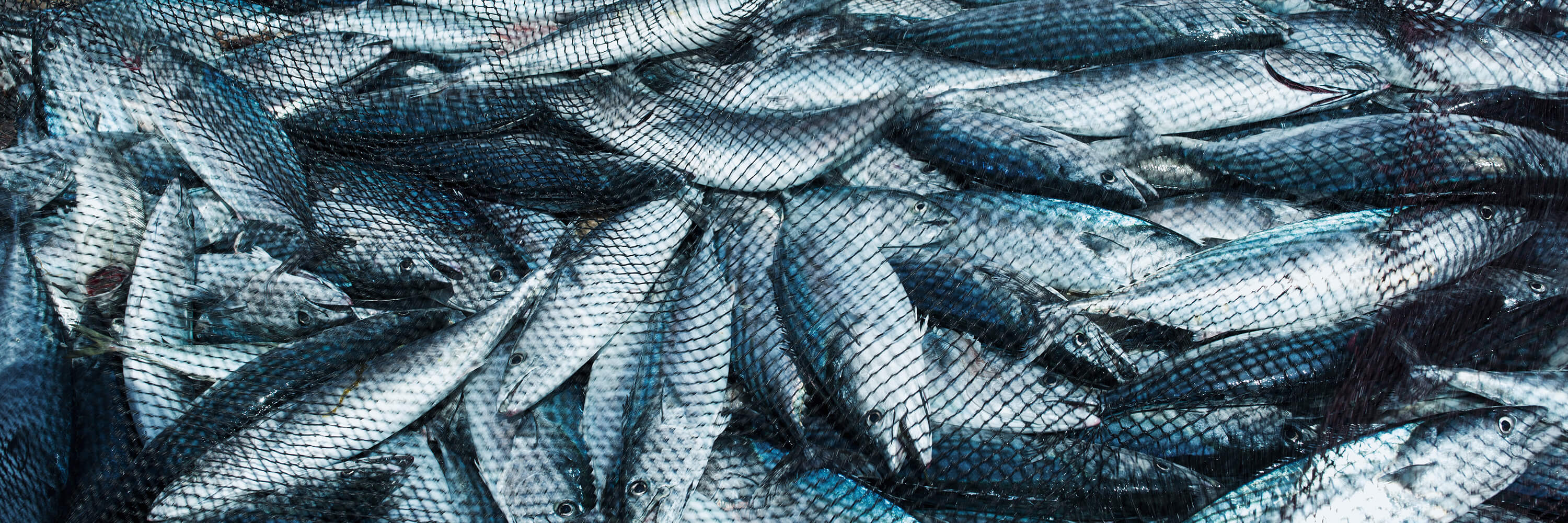
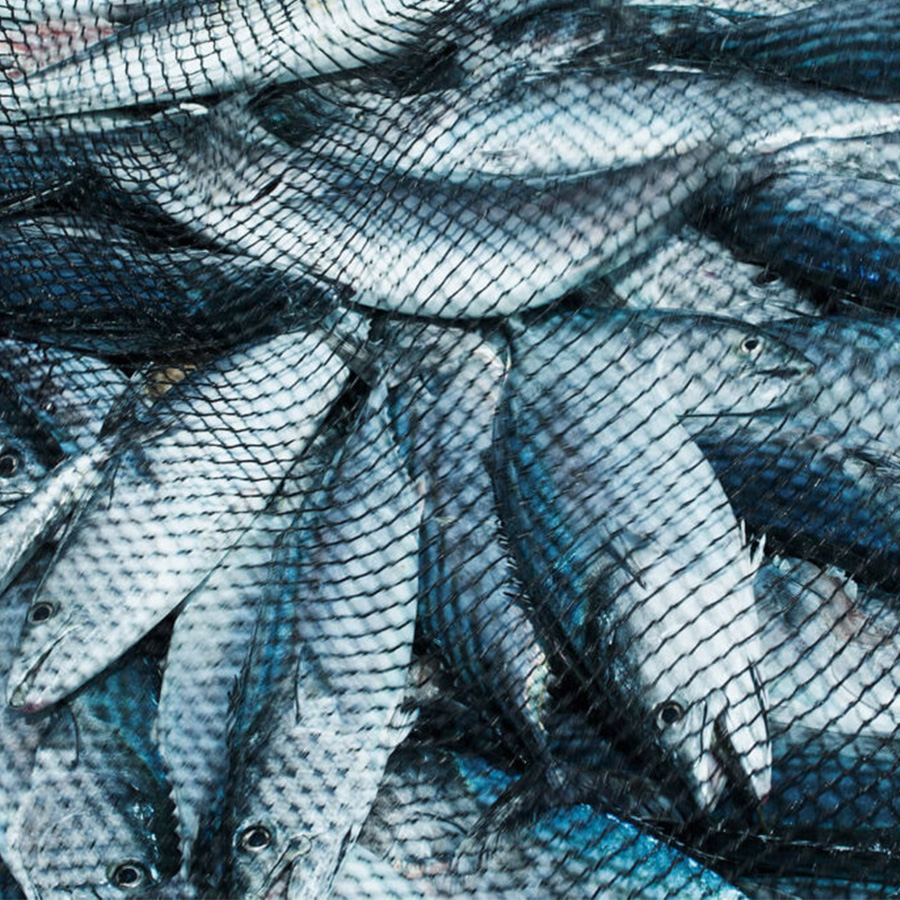
The Grocer Op-Ed: Farmed Fish Are Suffering, by Animal Equality
By: Abigail Penny, Animal Equality UK Executive Director
“As good as any bullet.” The words of a farm manager on a UK pig farm as he was filmed hammering pigs to death.
The exposé by Animal Equality led major supermarkets to promptly ditch the producer, while the owner resigned from his government-appointed chairman role within a major farm assurance scheme.
Yet, unbeknown to many, bludgeoning still occurs for some animal species due to legal ambiguity. While the Animal Welfare Act broadly states that ‘unnecessary suffering’ of animals is not permitted, farmed fish are yet to receive species-specific legal protections in the form of ‘Welfare at the Time of Killing’ regulations, leaving tens of millions of fish unprotected against potentially the most gruesome of fates.
More specifically, there is inadequate legal protection against farmed fish spending their final moments gasping for breath, being bled to death, or being beaten in a process otherwise artfully termed by the industry as ‘percussive stunning’.
So-called ‘cleanerfish’, used by the aquaculture industry to eat lice off farmed salmon and trout, are covered by the same vague and bare-bone laws. A peer-reviewed study published in 2020 noted some data suggests up to 100% of cleanerfish die on individual commercial farms before even making it to an abattoir, likely due to the conditions they’re forced to endure. Those who do make it are slaughtered, with no specific legal requirements in place as to whether or not to stun before killing.
True, major processors opt to ‘handle with care’ and stun fish before slaughter. But dig a little deeper and it’s dubious as to whether or not this optional approach is fit for purpose. In 2021, Animal Equality released harrowing undercover scenes of fish not being effectively stunned by the Scottish Salmon Company (now known as Bakkafrost Scotland), a self-proclaimed ‘pioneer in aquaculture.’
Many had their gills painfully cut while fully conscious, some fell to the floor where they were left to asphyxiate, and others were clubbed to death. In one instance a fish was struck no less than seven times. This, despite there being a multimillion-pound stun-kill machine on site.
Giving further cause for concern is that the £150m-turnover company – absorbed by Faroe-based Bakkafrost in 2019 – was accredited by Best Aquaculture Practices at the time. To think of such suffering taking place under the watch of an accredited company – which claimed this was an “isolated incident” – might lead to raised eyebrows at first. The company said a subsequent full investigation with external authorities identified no welfare concerns. But over the years, our investigations have proven time and again that assurance schemes can’t be relied upon in isolation.
Take Red Tractor, for example. Animal Equality has investigated 26 facilities accredited by the scheme since 2017 and has consistently exposed farms breaking the standards that they themselves set, not to mention brazenly breaking the law at the same time.
We’ve also filmed inside an organic, Soil Association-accredited dairy farm, finding calves being violently slapped, force-fed and sworn at. And we’ve captured images of hens in overcrowded cages, as many as 100 crammed into a single cage, under the ‘Laid in Britain’ scheme. Such schemes are without legal enforcement powers, so they cannot hold animal abusers to account. On the contrary, only governments can.
Have we not yet learned that the animal agriculture industry in all its forms cannot continue to self-police? The government’s current overreliance on optional, legally powerless assurance schemes is alarming, and with no robust legislation in place, farmed fish are being desperately let down. It was only earlier this year, in fact, that the Animal Plant & Health Agency Scotland finally introduced welfare-oriented inspections in Scottish fish abattoirs for the first time ever, following lobbying from Animal Equality and fellow advocacy groups.
We need watertight laws to be enacted, while ensuring appropriate oversight of this billion-pound industry.
So too says researcher John Webster, who has prompted a number of landmark legislative changes for animals over recent decades, having instigated the use of the ‘Five Freedoms’ paradigm and prompting an end to industrialized veal production in the UK. Joined by over 20 supporters including MPs, councilors, scientists and animal advocates, he recently sent an open letter to the influential government-advisory body, the Animal Welfare Committee – a council he personally founded decades ago.
Calling for enforcement measures, the collective is urging for inspections into fish abattoirs to be randomized and frequent, for CCTV to be made mandatory, and automated mechanical systems to be put in place. But while that brings legislation for fish in line with other farmed animals, Webster believes more must be done to ensure the efficacy of those laws. To quote him directly: “New laws mean nothing if they are not properly supervised. And while machines won’t become tired or frustrated, they are not without flaw.”
It’s been exactly 200 years since the first animal welfare law, ‘Martin’s Act’, came into place in the UK, yet one of the most exploited animal species is still one of the most neglected of all: fish. There is reason for hope, with the numbers of people turning to veganism continuing to soar, the recently passed Sentience Bill recognizing that aquatic animals feel pain, and Lord Trees hosting the first-ever Parliamentary event for fish welfare this summer. But with each passing day, farmed fish continue to languish without adequate legal protections in place.
How many more fish have to face the possibility of a truly agonizing end before we act?
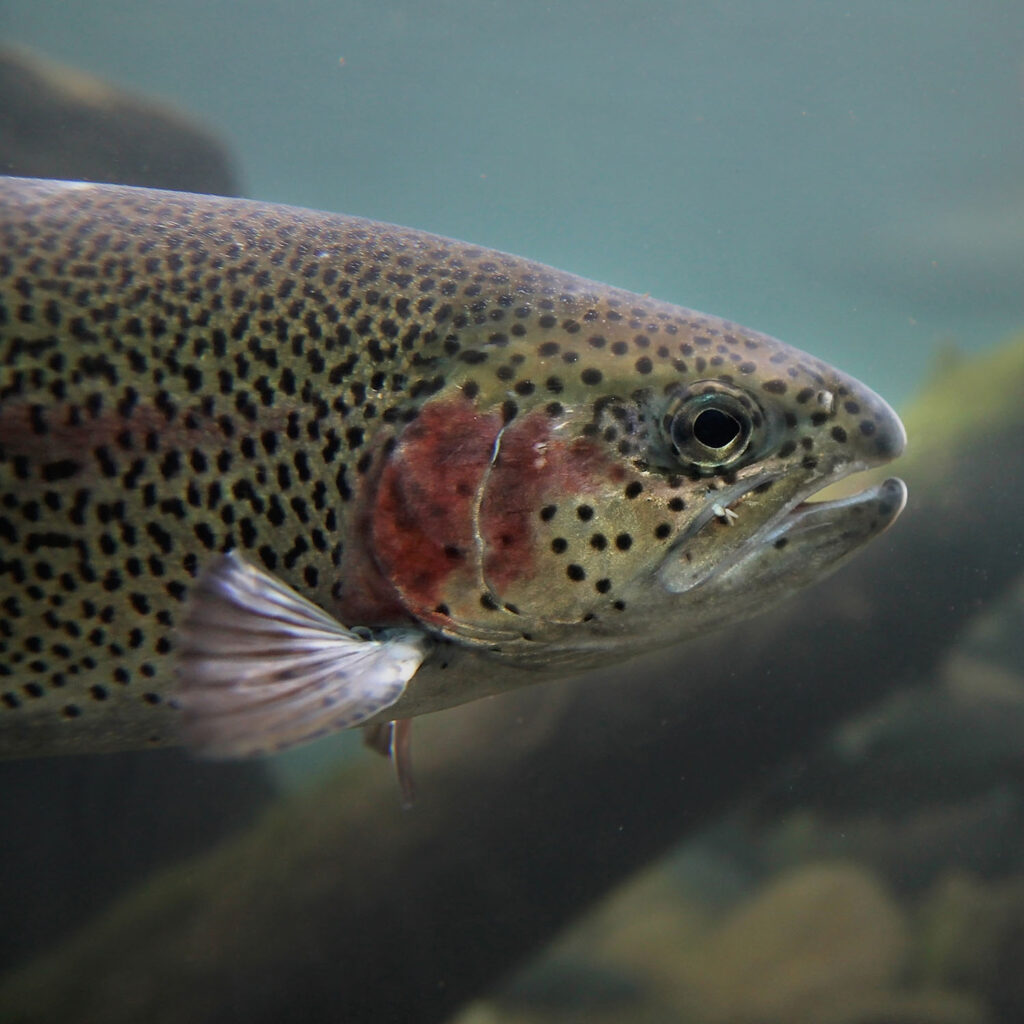
DEFEND FISH FROM ABUSE
Scientists confirm that fish have rich emotional lives and the capacity to feel.
Protect these sensitive beings by choosing plant‑based alternatives to animal food products.
Recommended

